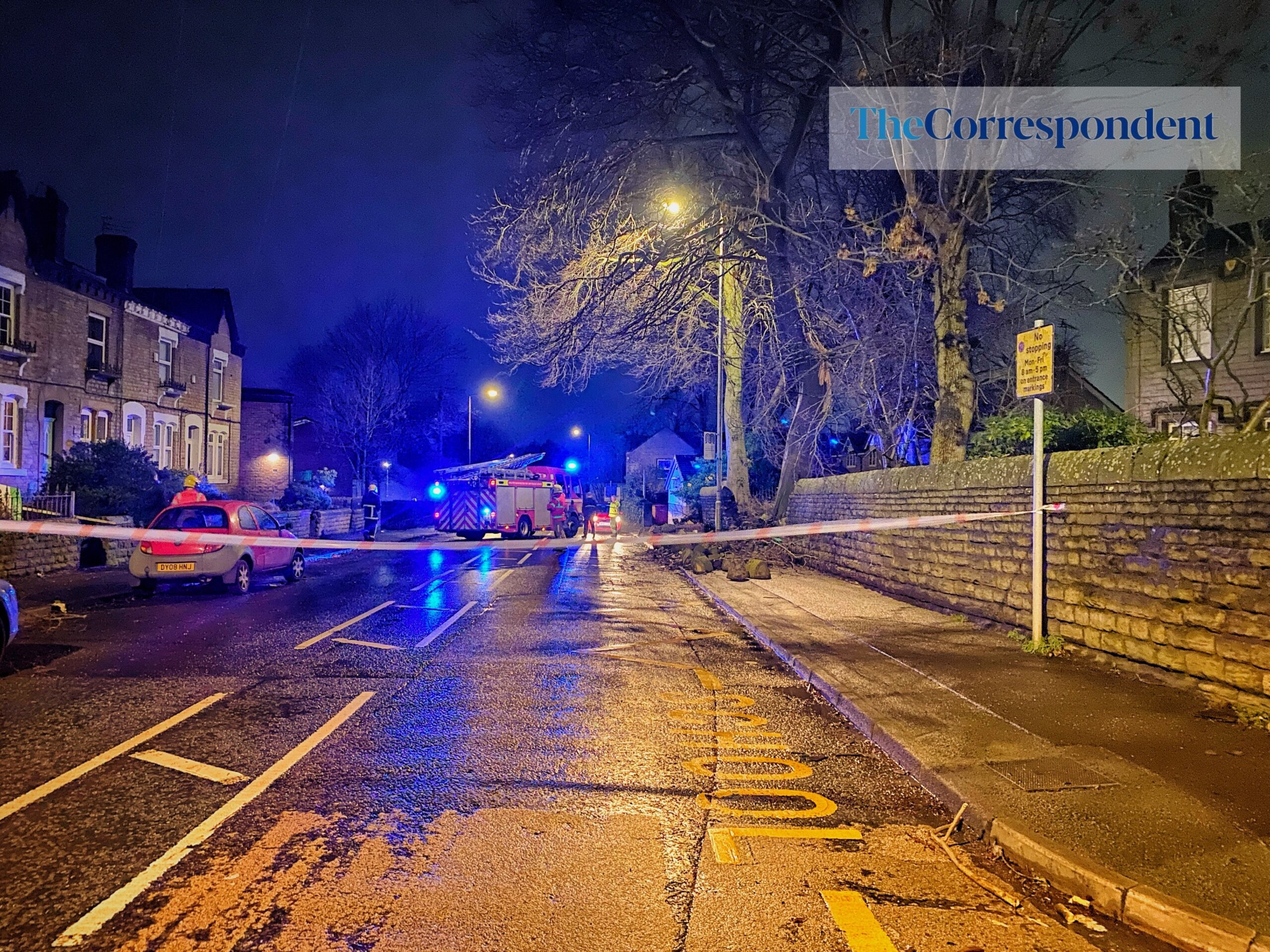Tripoli Unrest: Libyan Prime Minister Promises To Quell Militia Violence

Table of Contents
Escalation of Violence in Tripoli
Recent weeks have witnessed a significant escalation of violence in Tripoli, marked by intense militia clashes across several districts. These clashes, fueled by long-standing political divisions and power struggles, represent a serious threat to the fragile peace and security of the Libyan capital. Keywords like Tripoli violence, militia clashes, Libyan conflict, and security concerns are frequently used in news reports covering this worrying situation.
- Specific examples of recent violent incidents: Fierce fighting has been reported near the city's airport, disrupting air travel and causing significant damage to infrastructure. Clashes have also occurred near several government buildings, underscoring the challenge to state authority. Attacks on civilian areas have resulted in significant casualties and displacement.
- Number of casualties and injuries reported: While precise figures are difficult to obtain due to the ongoing chaos, reports from various sources indicate dozens of casualties and hundreds of injuries. The actual numbers may be far higher.
- Impact on civilian life: The escalating Tripoli violence has severely impacted civilian life. Many residents have been forced to flee their homes, seeking refuge in safer areas. Essential services, including hospitals and schools, have been disrupted, exacerbating the humanitarian crisis. The fear of further violence continues to grip the city.
- International condemnation of the violence: The international community, including the United Nations, has strongly condemned the violence in Tripoli, calling for an immediate cessation of hostilities and a return to dialogue. Concerns are growing about the potential for further destabilization of the entire country.
The Prime Minister's Response and Promises
Facing mounting pressure, the Libyan Prime Minister has issued a statement condemning the violence and pledging to restore order. His response, however, has been met with a mixture of hope and skepticism. Keywords such as Libyan Prime Minister, government response, security measures, and peace initiatives are central to understanding the government's approach to this crisis.
- Direct quotes from the Prime Minister's statement: The Prime Minister stated, "[Insert direct quote from the Prime Minister's statement regarding his commitment to ending the violence and restoring peace.]" He further emphasized the government's determination to hold those responsible for the violence accountable.
- Specific actions promised: The Prime Minister promised to deploy additional security forces to affected areas, initiate a dialogue with militia leaders to de-escalate tensions, and launch comprehensive investigations into the recent incidents. He also vowed to strengthen law enforcement and improve security measures across Tripoli.
- Assessment of the credibility of the Prime Minister's promises: The credibility of the Prime Minister's promises is debatable, given the history of past failures to effectively address militia violence and the persistent weakness of state institutions in Libya. The success of these initiatives will depend on several factors, including the willingness of the militias to cooperate and the government's capacity to implement its plans effectively.
International Community's Reaction and Involvement
The Tripoli unrest has drawn significant attention from the international community. Various international organizations and countries have expressed deep concern and offered support. Keywords like International community, UN Libya, foreign policy, and diplomatic efforts highlight the global dimension of this conflict.
- Statements issued by international bodies like the UN: The United Nations Security Council has issued several statements condemning the violence and calling for restraint. The UN Support Mission in Libya (UNSMIL) has also been actively involved in mediating between the conflicting parties.
- Offers of assistance or support from other nations: Several countries have offered assistance to Libya in addressing the crisis, including support for security sector reform, humanitarian aid, and diplomatic efforts to facilitate dialogue.
- Potential for international intervention or peacekeeping efforts: While the possibility of direct international military intervention remains unlikely, increased diplomatic pressure and potential for targeted sanctions against individuals involved in the violence are possibilities. The international community's role in supporting peace and stability is crucial.
Analysis of the Underlying Causes of the Conflict
The Tripoli unrest is not simply a matter of sporadic violence; it stems from deep-seated political and social factors. Understanding the underlying causes—keywords like political instability, power struggle, weak governance, and tribal conflict are key—is vital for finding lasting solutions.
- Explanation of the underlying power struggles between different factions: The conflict reflects a broader struggle for power and influence between different political factions, militias, and tribal groups vying for control of resources and territory.
- Analysis of the role of political divisions and tribal affiliations in the conflict: Political divisions and strong tribal affiliations significantly exacerbate the conflict, making it difficult to find common ground. These factors influence the allegiances and actions of various actors involved.
- Discussion of the weakness of state institutions and the lack of effective governance: The weakness of state institutions and the absence of effective governance create a vacuum of power, allowing armed groups to operate with relative impunity. This makes enforcing the rule of law incredibly difficult.
Potential Outcomes and Future Implications
The future trajectory of the Tripoli unrest remains uncertain. Several scenarios are possible, each with significant implications for Libya's political stability and future. Keywords such as future of Libya, political stability, peace prospects, and long-term implications frame the considerations for the future.
- Scenarios:
- Successful quelling of violence: The Libyan government, with the support of the international community, may successfully quell the violence, leading to a period of relative stability.
- Prolonged conflict: The violence could escalate further, leading to a prolonged period of instability and possibly a larger-scale conflict.
- Escalation of violence: The conflict could spill over into other parts of Libya, destabilizing the entire country and potentially reigniting wider civil strife.
- Possible impacts on the political landscape and the stability of the country: The outcome of the Tripoli unrest will profoundly impact Libya's political landscape. A successful resolution could pave the way for political reform and reconciliation, while a prolonged conflict could lead to further fragmentation and instability.
- Consideration of the long-term consequences for the Libyan people and the region: The long-term consequences of the Tripoli unrest will be significant, affecting the lives of millions of Libyans and potentially destabilizing the wider region. The lack of security and political uncertainty will deter economic growth and investment.
Conclusion
The recent Tripoli unrest underscores the fragility of Libya's political situation and the persistent threat of militia violence. While the Prime Minister's promises offer a glimmer of hope, the success of these efforts remains uncertain. The international community's role in supporting peace and stability in Libya will be crucial. Understanding the complexities of the Tripoli unrest is paramount for a complete grasp of Libya’s future. Stay informed about the developing situation in Tripoli and continue to monitor the Libyan government's efforts to quell the militia violence. The future of Libya depends on the resolution of the Tripoli unrest and the establishment of lasting peace.

Featured Posts
-
 Deadly Tornado Cnn Correspondent Documents Destruction
May 19, 2025
Deadly Tornado Cnn Correspondent Documents Destruction
May 19, 2025 -
 Il Palagio At Four Seasons Firenze A Weekly Wine Exploration
May 19, 2025
Il Palagio At Four Seasons Firenze A Weekly Wine Exploration
May 19, 2025 -
 Ufc 313 Controversial Prelims Win Acknowledged By Fighter
May 19, 2025
Ufc 313 Controversial Prelims Win Acknowledged By Fighter
May 19, 2025 -
 Kuzey Kibris Gastronomisi Itb Berlin De Basarili Bir Tanitim
May 19, 2025
Kuzey Kibris Gastronomisi Itb Berlin De Basarili Bir Tanitim
May 19, 2025 -
 Arenado Contract Talks Stall Latest Mlb Rumors And Implications
May 19, 2025
Arenado Contract Talks Stall Latest Mlb Rumors And Implications
May 19, 2025
